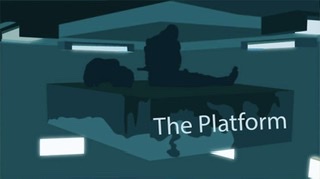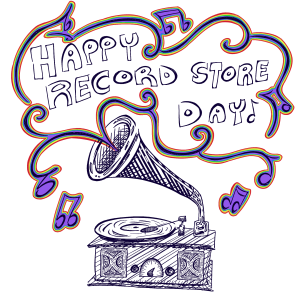Film Review: ‘The Platform’

Illustration by Triston Simpson
March 30, 2020
In the classic film adaptation of the novel “To Kill a Mockingbird,” the hero of the story, Atticus Finch, tells his daughter Scout, “You never really understand a person until you consider things from his point of view, until you climb inside of his skin and walk around in it.” Films allow us to have this experience of seeing another’s point of view. Sometimes, they challenge us to observe a perspective on an issue that we might not have thought about. Other times, they function simply as escapism, giving us a break from the stress of everyday life. In the case of the film titled “The Platform,” we’re dragged through the miserable depths of human depravity and suffering and forced to examine our own core beliefs of right and wrong.
“The Platform” (or “El Hoyo,” as it is originally titled) is a Spanish sci-fi thriller currently available on Netflix. The film begins in the claustrophobic atmosphere of a giant vertical prison with countless numbered cells descending down as far as the eye can see. As explained to him by his cellmate, central character Goreng learns that every day, a platform covered in food is lowered from the top platform all the way to the bottom. The platform is supplied with enough food for all the cells, but those at the top of the tower always take much more food than they need, leaving those on the lower levels to starve. At first, Goreng is appalled at the greed of those on the levels above him, and he makes weak, unsuccessful efforts to protest these harsh conditions. As he soon finds out, however, the prisoners are transferred to a new, random cell every month, and just like the slowly lowering platform, Goreng begins to discover what moral depths he’s capable of descending to as his situation becomes more desperate.
“The Platform” is a powerful allegory about the dangers of greed. It uses striking imagery and brutal, gory violence to contrast the haves and the have-nots, the well-fed and the hungry, the moral and the immoral. Due to the ever-changing nature of the structure, however, these lines become blurred as everyone in the tower becomes a pawn in the zero-sum game, trading their humanity for food. It’s a bleak, symbolic portrayal of a capitalistic nightmare that finds its way into the real world — perhaps even into our own country.
What the film accomplishes best is how it allows the viewer to sympathize with its characters no matter how morally bankrupt they become, something that can be close to impossible to do in the real world. It also presents a challenging concept, one that’s likely to inspire hours of debate afterwards. We like to think that we’d at least hold firm to our most basic moral values when placed in such a dire circumstance, but deep down, we know that’s a lot harder than it sounds. Films like “The Platform” help remind us of this.
“The Platform” isn’t without its flaws, however. A ridiculous amount of exposition in the opening scene of the film, no matter how necessary it might have been, gets the film off to a rocky start and leaves practically no room for subtlety later. We know the movie’s all about capitalism from the get-go, and everything is viewed through that lens as the film progresses. Additionally, the ending doesn’t make much sense for a number of spoiler-heavy reasons.
Overall, though, “The Platform” is a multilayered, captivating film that will undoubtedly challenge you to look at the world from a different point of view. Don’t be fooled by the Netflix label — this film is anything but American, so it presents a point of view that doesn’t receive much attention in this market. Fair warning: the film is brutal and viscerally gory, so watching it is definitely not a pleasant experience. Neither is starving to death, for that matter, but unfortunately, that’s the reality for a lot of people in this world — again, something “The Platform” helps remind us of.
One tiny recommendation: do not eat while watching this movie.







